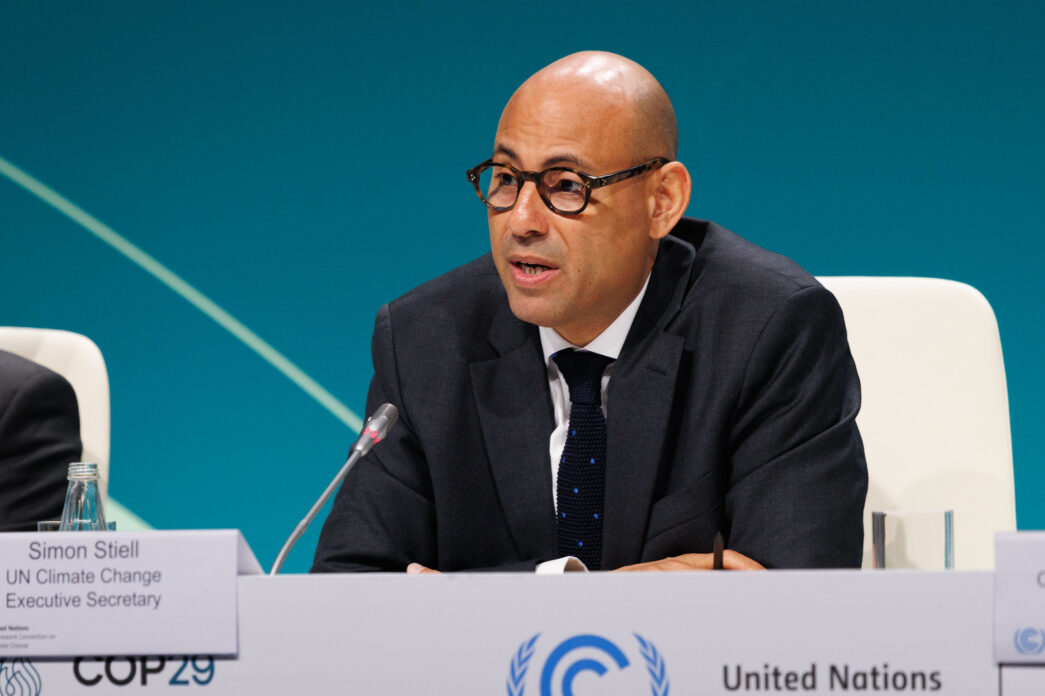UN Climate Change Executive Secretary Simon Stiell hailed nine countries as pioneers of transparency at COP29, recognising their commitment to the Paris Agreement through the first-ever Biennial Transparency Reports (BTRs).
“These nations are standing and delivering on a crucial commitment,” Stiell said at the event in Baku.
Transparency under the Paris Agreement took a major step forward as Stiell acknowledged the inaugural submission of BTRs by Andorra, Guyana, Panama, Japan, Spain, Türkiye, Kazakhstan, the Netherlands, and Singapore. With the Enhanced Transparency Framework (ETF) now fully operational, these countries set the standard for what he called a “stand and deliver” moment for climate action.
“Transparency is a cornerstone of the Paris Agreement,” Stiell emphasised, noting that robust and reliable climate data empowers stronger and more effective policies.
He praised the frontrunners for leading the charge, setting a high bar for others to follow. Each report, he said, is not just a statement of current progress but a roadmap for future action.
Stiell described the progress as “remarkable,” spotlighting how these early submissions will drive further global action.
“Each Biennial Transparency Report represents a milestone,” he said, highlighting how these documents help nations capture their climate progress and outline the road ahead. He stressed that the reports are vital tools for governments and businesses, laying a foundation for evidence-based policies and informed decision-making.
The UN Climate Change Secretariat has focused on ensuring that even the most vulnerable nations have the capacity to meet transparency commitments.
Stiell acknowledged the hard work behind the reporting cycle, including the upcoming technical reviews and multilateral assessments designed to spotlight areas for improvement, identify capacity needs, and measure progress.
Over the past year, the UN Climate Change Secretariat has taken significant steps to support transparency, rolling out online tools, expert training, and guidance. More than 2,000 experts have been trained, and new platforms like the Baku Global Climate Transparency Platform are extending support to countries across the globe.
Stiell highlighted that transparency goes beyond simply submitting reports; it’s about refining strategies and learning from the data to achieve ambitious climate goals.
“Transparency is crucial, not only because it highlights progress but because it spurs more action,” Stiell said.
He explained that clear, accurate data allows countries to identify risks, allocate resources effectively, and build resilience—especially for vulnerable populations. The private sector, he added, also benefits from transparency, using the data to guide business and investment decisions.
Stiell ended with a strong call to all nations, urging them to submit their Biennial Transparency Reports on time and fully engage in the review process.
“Every submission, every lesson learned, brings us closer to the goals of the Paris Agreement,” he said.
He emphasised that transparency is in every nation’s best interest. He vowed that the UN Climate Change Secretariat would remain steadfast in its support, offering resources and capacity-building to ensure global participation.
As COP29 continues, the early success of these BTRs stands as a milestone for climate diplomacy, signaling that the world is moving from pledges to concrete actions.
“We are all on this journey together, for transparency.”
The spotlight is now on the rest of the world to follow the lead set by these nine nations and make transparency the norm, not the exception, in global climate action.














